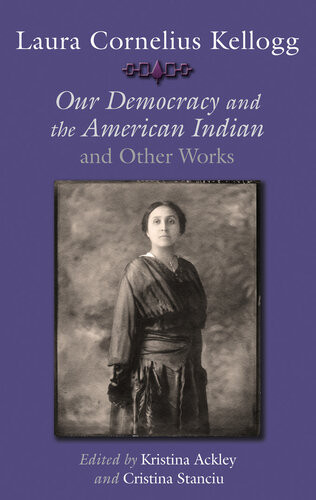

Most ebook files are in PDF format, so you can easily read them using various software such as Foxit Reader or directly on the Google Chrome browser.
Some ebook files are released by publishers in other formats such as .awz, .mobi, .epub, .fb2, etc. You may need to install specific software to read these formats on mobile/PC, such as Calibre.
Please read the tutorial at this link: https://ebookbell.com/faq
We offer FREE conversion to the popular formats you request; however, this may take some time. Therefore, right after payment, please email us, and we will try to provide the service as quickly as possible.
For some exceptional file formats or broken links (if any), please refrain from opening any disputes. Instead, email us first, and we will try to assist within a maximum of 6 hours.
EbookBell Team

4.3
68 reviewsLaura Cornelius Kellogg was an eloquent and fierce voice in early twentieth century Native American affairs. An organizer, author, playwright, performer, and linguist, Kellogg worked tirelessly for Wisconsin Oneida cultural self-determination when efforts to Americanize Native people reached their peak. She is best known for her extraordinary book Our Democracy and the American Indian (1920) and as a founding member of the Society of American Indians. In an era of government policies aimed at assimilating Indian peoples and erasing tribal identities, Kellogg supported a transition from federal paternalism to self-government. She strongly advocated for the restoration of tribal lands, which she considered vital for keeping Native nations together and for obtaining economic security and political autonomy.
Although Kellogg was a controversial figure, alternately criticized and championed by her contemporaries, her work has endured in Oneida community memory and among scholars in Native American studies, though it has not been available to a broader audience. Ackley and Stanciu resurrect her legacy in this comprehensive volume, which includes Kellogg's writings, speeches, photographs, congressional testimonies, and coverage in national and international newspapers of the time. In an illuminating and richly detailed introduction, the editors show how Kellogg's prescient thinking makes her one of the most compelling Native intellectuals of her time.